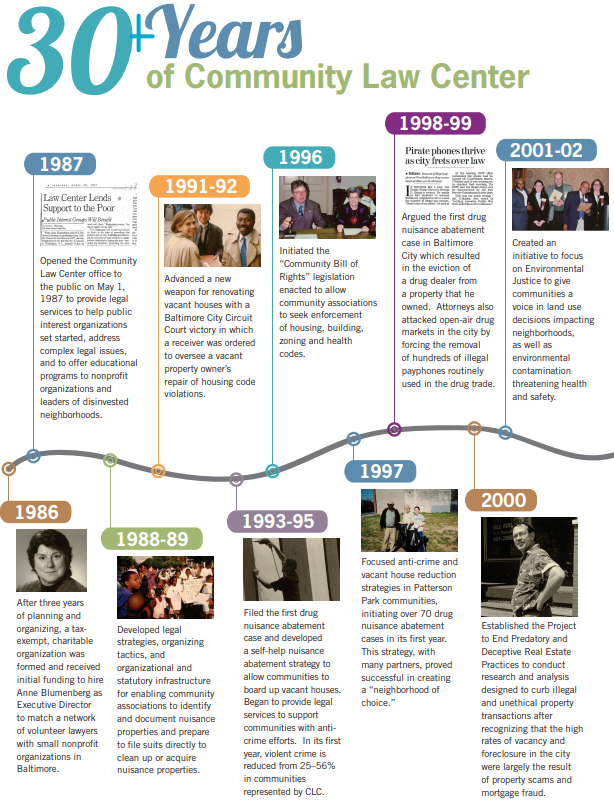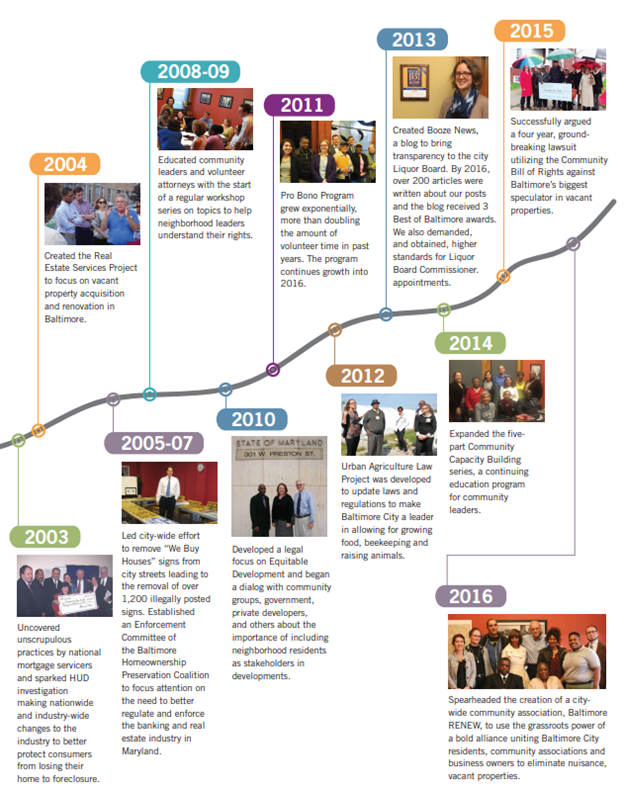Community Law Center was founded in 1986 by a group of lawyers and community organizers who saw the need for residents in Baltimore City to band together and advocate effectively for their neighborhoods.
We have been using the law to achieve meaningful solutions to complex daily problems — abandoned properties, nuisance liquor establishments, illegal dumping and other environmental hazards — as well as bigger policy issues.
Highlights
- We successfully resolved a four-year, groundbreaking lawsuit against Baltimore’s biggest speculator in vacant properties, on behalf of six lower-income neighborhood associations. As a result, 57 dangerous and unstable properties were demolished; stabilized with new roofs, doors, and windows; cleaned of graffiti, trash and weeds; or transferred to new owners.
- Our efforts led to the city-wide removal of “We Buy Houses” signs from city streets: 1,200 illegally posted signs in total. We also established an Enforcement Committee of the Baltimore Homeownership Preservation Coalition to focus attention on the need to better regulate and enforce the banking and real estate industry in Maryland.
- We successfully argued the first drug nuisance abatement case in Baltimore City which resulted in the eviction of a drug dealer from a property that he owned and forced the removal of hundreds of illegal payphones routinely used in the drug trade.
- We initiated the “Community Bill of Rights” legislation enacted to allow community associations to seek enforcement of housing, building, zoning and health codes.
- Community Law Center has also been working to address the harms that Baltimore’s broken tax sale system causes to communities in Baltimore: homeowners losing their homes and equity over unpaid tax bills as low as $750; and property speculation and abandonment that result from the system, with vacant properties sinking further and further under water. Starting in 2015, a Community Law Center staff attorney has co-chaired the Tax Sale Work Group – comprised of nonprofit leaders, city government officials, state representatives, and foundation executives – to identify specific actions toward reform, including legislative changes. Since 2021, we have also served on the Mayor’s Tax Sale Task Force, made up of advocates and city government officials, to develop and recommend to the Mayor specific tax sale reforms that can be implemented by Baltimore City.
“None of our progress would be possible without your critical and fine work. I am extremely impressed. You are a Maryland gem.”
Sarah Bloom Raskin, Commissioner of Financial Regulation, Department of Labor Licensing & Regulation

